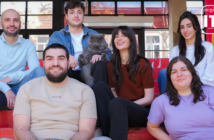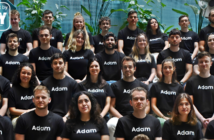- SMOK Venures’ Borys Musielak’s posts – one AI-generated and one handwritten – have caused a discussion about certain practices in the CEE startup ecosystem
- Naturally, both VCs and founders may have unpleasant experiences from time to time and are encouraged to share them
- All the parties involved need to remember that they are parts of the same growing ecosystem and share the common goal of facilitating its progress
Fresh after his speech at the Untold Stories Conference in Budapest, Borys Musielak of SMOK Ventures published a quite resonant post on his LinkedIn in early December. The post was about what VCs should and shouldn’t do if they don’t want to be seen as jerks by the founders, but the most intriguing detail was the fact that the post was AI-generated.

Borys Musielak, Founding Partner at SMOK Ventures
It appears like the point was to demonstrate how OpenAI’s ChatGPT can compose ‘evergreens’ just as good as a human writer (or better) – or, as Mr Musielak himself put it, ‘generic LinkedIn influencers: we are all screwed.’
Any topic would be good for making this point, yet the author chose this one. Given how LinkedIn is different from other social media in terms of communication culture, the comments were as favorable as usual. Yet, the comment section was gushing with approvals and amendments so much that it inspired Mr Musielak to expand upon the topic in a post on his Medium – this time, generated by his own 100% natural intelligence.
In turn, here at ITKeyMedia, we thought to ourselves: We usually write about success stories – things that did happen (investment rounds, product launches, etc.). We cannot know how many such stories didn’t happen because one of the parties involved was a jerk. So we decided to approach several founders and investors from the CEE startup ecosystem to see what they have to say on the topic, and they did come up with quite a few attention-worthy stories, amendments, and even objections.
Obstacles to Speed and Transparency

Cristian Negrutiu, Founding Partner at Sparking Capital
For instance, Sparking Capital’s founding partner Cristian Negrutiu remarks that being transparent and fast can sometimes be challenging for VCs in their communication with founders.
‘Very often, several excellent opportunities are on the table and, since money is not limitless, you have to choose. Different matters need to be taken into account, so this process can take some time. Moreover, the founders can also have several choices of VCs, which will add even more time,’ Mr Negrutiu points out.
The Startups’ Unwanted ‘Grit’
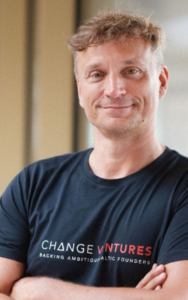
Yrjö Ojasaar, Investment Partner at Change Ventures
Yrjö Ojasaar of Change Ventures downright disagrees with #4 that preached to the VCs to respect the term sheet. According to his experience, this problem arises on the side of the founders much more often. ‘Even worse, a lot of founders shop around the term sheets to fish for a higher valuation in direct violation of confidentiality and exclusivity clauses,’ he adds.
The investor also points at how a significant percentage of founders think they reveal their ‘grit’ and debate the fund’s rules and business model. ‘You should start investing in hardware, you should accept more risk and invest in MVP stage, you should get into crypto, etc. Worse yet, some founders ask why don’t I believe in them as a founder, when the decision is actually much more complicated than that. These conversations are not productive, and a waste of both parties’ time,’ Mr Ojasaar is convinced.
The Investors’ Ungrounded Arrogance

Andrius Juozapaitis, Co-Founder at Algori
From the founders’ side, Andrius Juozapaitis, co-founder of Algori (a Change Ventures portfolio company, by the way) remembers an instance from his experience. Algori is an AI-enabled consumer analytics platform, but it hasn’t always been this way. The startup pivoted towards a pure-play data analytics business model during its Pre-Seed fundraising. There’s no way to make money from data in this field, you’re wasting time,’ Mr Juozapaitis heard from a VC partner.
According to his experience, this is a specifically CEE problem: the VCs aren’t aware of the possible gaps in their knowledge and are willing to talk about things outside of their expertise from an authoritative standpoint. After all the intro calls that he had to make, he notices an average difference between CEE VCs and Northern European or British, or American ones.
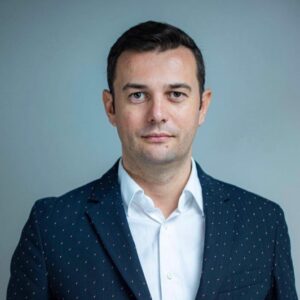
Vlad Sarca, Partner at Sparking Capital
‘A lot of larger European firms with established structures in place and armies of associates and analysts sometimes waste a lot of time wasted because junior VCs in a generalist VC fund know pretty much… nothing. They can’t be expected to understand all the businesses. And yet their initial understanding and conviction determine whether ‘the big boys’ spend any time on a startup case,’ Mr Juozapaitis continues.
‘Do not take money from low EQ VCs. There will be many tough times, challenges, and mistakes during your founder journey. The last thing you need is a snarky back-seat driver criticizing and undermining you to feed his ego,’ Mr Ojasaar adds.
‘As an entrepreneur myself but also an investor, I hear from founders about investors that behave like gatekeepers to capital. They don’t reply to investment proposals or behave arrogantly,’ Sparking Capital’s partner Vlad Sarca confirms.
Customers First
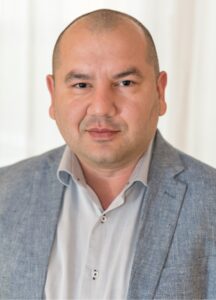
Adrian Dima, Co-CEO and Product Lead at KFactory
KFactory’s co-founder and product lead Adrian Dima thinks that such behavior is due to the false impression that the investors are the most important for startups, more important than customers. The entrepreneur reminds that the customers are the only thing that really matters for a startup. ‘If you’re having customers, the right business model, and the right team – funding will follow and you can choose the right investor,’ Mr Dima assures.
Vlad Sarca of Sparking Capital reminds that the ecosystem is still a growing one, and it’s every party’s duty to contribute to its growth. The parties need to align and push toward their common goal. This is the base for healthy long-term collaboration.
Finally, following Mr Musielak’s mentioned Medium post, we’d like to encourage founders who encountered bad behavior from a VC to go to Landscape.vc or Bound and leave a note there. These resources are anonymous but verified, allowing fellow founders to exchange opinions on both positive and negative sides of the VCs’ attitude and practices.

Kostiantyn is a freelance writer from Crimea but based in Lviv. He loves writing about IT and high tech because those topics are always upbeat and he’s an inherent optimist!



